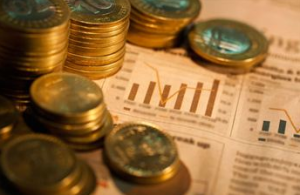 In the previous article we have seen What is a Bitcoin and How they are Created. We’ll now try to explain in simple English How can one Obtain, Store and Transact using Bitcoins.
In the previous article we have seen What is a Bitcoin and How they are Created. We’ll now try to explain in simple English How can one Obtain, Store and Transact using Bitcoins.
How can one Obtain Bitcoin ?
Bitcoin are obtained either through mining them yourself (out of reach for most people and institutions at this point given the sophistication of the computing power now required to do so) or by buying them from exchanges or from individuals that are selling them directly. There are roughly one hundred or more bitcoin exchanges around the world and new ones seem to be popping up daily. Examples include Slovenia-based Bitstamp, Bulgaria based BTC-e and China-based BTC China and Huobi. Buying from an exchange typically requires the provision of proof of identity and detailed contact information in order for the exchange to comply with “know your customer” and anti-money laundering requirements. Typically, a bank account is linked to the new exchange account so that money can be wired onto the exchange although some exchanges have other methods that enable direct deposits without going through a bank. There are also various websites through which one-on-one direct transactions can be arranged. A handful of bitcoin ATMs have also sprung up that take cash in exchange for a paper receipt with the codes necessary to load bitcoins onto your wallet.
How can One Store Bitcoin ?
Bitcoins are stored in bitcoin wallets, which serve a similar purpose as physical wallets or bank accounts. There are three main types of wallets: a software wallet stored on your computer’s hard drive, mobile wallets that run as an app on your smartphone, and web-based wallet services (some of which link to desktop and mobile wallets). If you look at a wallet you do not find bitcoins in the same way that you would find cash by looking at a physical wallet or bank account; instead you find a public “key(s)”, which is equivalent to a bank account number; it is the public address on the network that one would send bitcoins to if they wanted to send you money.
Public keys are pseudonymous – everyone can see the account, but not the identity attached to it. As all bitcoin transactions are recorded in the block chain – a huge ledger of every transaction – the ledger shows how many bitcoin your public key(s) or address owns. This is not revealed in a single balance, but in a series of transactions. For every public key in a wallet, there is one private key that allows you to spend the funds of that address. Wallets stored in places with an internet connection are referred to as “hot” wallets; hot wallets are akin to the cash you carry around in your wallet that is readily available to spend. Although there are ways to secure these wallets, they are susceptible to theft by hackers, and wallets stored on hard drives are susceptible to a hard drive crash or corruption (if you lose them, they are gone unless you’ve made backups). To avoid these losses, there are also cold storage wallets offline that are considered to be a safer, but less convenient, storage option; many users store the bulk of their bitcoin in cold storage and transfer small amounts to hot storage wallets for regular use.
How can One Transact using Bitcoins ?
Transactions are sent between bitcoin wallets. Bitcoins being transferred are sent to the bitcoin address of the recipient and signed with the private key of the sender.
Each transaction has three pieces of information: (1) an input (a record of where the bitcoins you plan to send came from in the first place), (2) the amount of bitcoins you are sending, and (3) an output (the address you are sending the bitcoins to). Because there is no “balance” of bitcoins to spend – only a series of transactions – a past transaction in which you received bitcoins is then essentially forwarded on when you want to pay someone else; if the amount of the new transaction does not precisely match the amount of the old transaction, another transaction will take place that will send you the difference, or change, in the same way that if you pay for an $18 dollar purchase with a $20 dollar bill, you will receive $2 change. The message that contains the input, amount and output is also sent out to the wider coin network to be verified by the miners and put into the block chain.
What Can One BUY With Bitcoins ?
One of the largest uses of bitcoin is for online gambling. There are also general e-commerce sites such as Bitcoinshop.us (offers a wide range of products) or BitcoinStore.com (offers electronic products). A growing number of online retailers and services are accepting bitcoin such as WordPress, Overstock.com, Zynga, Tesla, Virgin Galactic, Reddit and OKCupid. There are a handful of locations that accept it, but the list is still small. There are also bitcoin gift cards that can be purchased online and used at a number of large retailers.